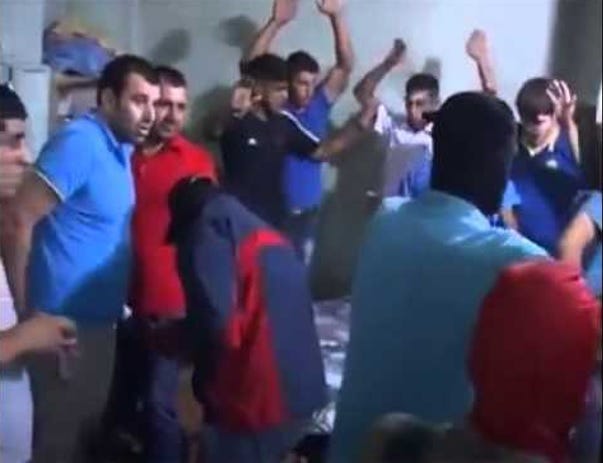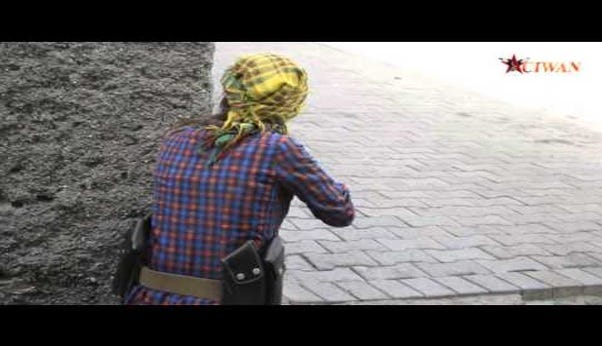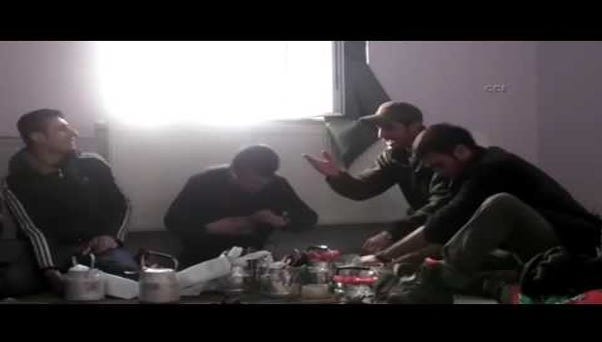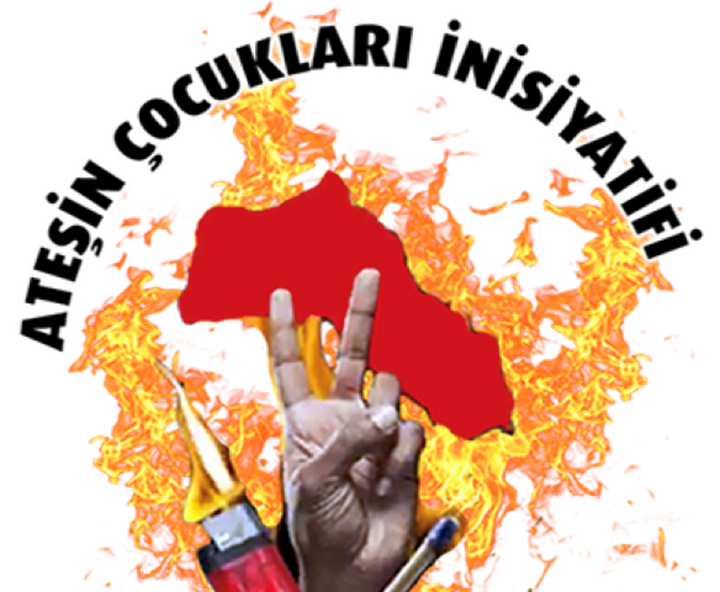The Kurdistan Workers’ Party (PKK) has steadily adapted to the changing landscape of its war with the Turkish state in the form of new resistance groups. Since its founding, the PKK has followed Mao Zedong’s strategy of a protracted people’s war wherein a relatively small and underequipped force wages a long-term war against a larger and better-equipped state-backed military, aiming to avoid outright conflict in favor of smaller battles that may be more easily won over time. This is a necessity for the PKK and its affiliated groups, given that the Turkish Armed Forces (TAF) are the second largest military within NATO.
Turkish Kurdistan or Northern Kurdistan (Kurdish: Bakurê) is a mountainous region located in southeast Turkey. The PKK’s guerilla activities are largely limited to this region as well as the mountains of Southern Kurdistan in northern Iraq. Given its rugged geography and extensive cave systems, the region is also host to several other Turkish revolutionary groups such as far-left Turkish militias, some of whom are either overtly or tacitly aligned with the PKK.
The KCK: A New Political Umbrella
Following the 1999 capture and rendition of PKK supreme leader Abdullah Öcalan by Turkish intelligence and their CIA counterparts, the PKK has reevaluated its tactics. This has included the establishment of the Kurdistan Communities Union or Koma Civakên Kurdistanê (KCK), a political group that aims to implement Öcalan’s political philosophy without the PKK’s previous notions of nation and state building from a Leninist-Marxist perspective. Rather, the KCK aims to build an interconnected but stateless network of democratically elected communes and assemblies in Kurdistan to serve as a model for the rest of the world.
Militant Wire now offers regularly published research and analysis accessible to paid subscribers. Recent exclusive articles include:
• Manufacturing the Revolution: Weapons and Explosives Craft-Produced by Myanmar's Anti-Junta Fighters
• Communist Guerrillas Ambush Philippine Soldiers Reportedly Conducting Disaster Relief Operations
• MW Monitoring: ISKP Deepens Collaboration with Halummu Translation Outlet; Pro-Islamic State Al-Saqri Foundation for Military Sciences Resurfaces
• Weapons of the Turkish Black Market
• Accelerationist Neo-Nazi Propaganda Group Releases New Documentary, "White Terror"
• Analysis: Possible Islamic State-Inspired Attack in Grozny Comes Amidst Surge in Anti-Russia Jihadist Propaganda
• MW Monitoring: Islamic State Calls for “The Bleeding of Christians”; IS Celebrates History of Mozambique Branch; ISKP's Tajik Media Publishes Booklet Aiming to Recruit Taliban Fighters
• An Investigation into Rising Tajik Islamic State Groups Recruiting Central Asians to Fight in Afghanistan
Article 31 of the KCK Contract states that everyone is obligated to “attain the awareness of self-defense” and that each individual must be prepared for and support the work of this effort. It also states that everyone is obliged to engage in the struggle of resistance when faced with situations that require legitimate defense. Article 32 also states that if the Turkish state is unwilling to seek a democratic solution in its conflict with the Kurds and their allies, that “guerrilla wars based on insurrection and self-defense will thrive in Kurdish lands”. In this way, the KCK provides an ideological framework for the various PKK-aligned resistance groups operating in Northern Kurdistan.
YDH-H: A Militant Youth Wing of Frontier Justice
The YDG-H (The Patriotic Revolutionary Youth Movement) was established by PKK leadership in 2013 in the midst of negotiations between the Turkish state to settle the four-decade-long conflict in Kurdistan. When these negotiations broke down in 2015 after it became clear that no deal on Kurdish autonomy could be reached, the YDG-H began to expand its influence throughout the region, initially by taking action against local drug traffickers, pimps, and gambling houses in an effort to recruit young Kurds.
Here is a short video of YDG-H's actions against gamblers: Ydg-h uyuşturucu operasyonu
The YDG-H aims to enhance security within Kurdistan so that links between mountain cadres and those operating in urban areas may be established and strengthened. Moreover, TAF actions such as pressuring civilians, the arbitrary detention of elected mayors in Kurd-majority cities, and rising chauvinism in the ethnic Turkish population served to encourage many Kurdish youths to take up arms and gave credence to the PKK the message that the state is opposed to a settled peace. Moreover, YDG-H social networks have promoted youth radicalization through solidarity campaigns, legal institutions, bookstores, and more.
On 12 August 2014, the KCK declared that "There is no other option left for the people of Kurdistan but self-government". This was followed by several years of intense fighting on the part of the YDG-H and the PKK. Some smaller towns such as Silopi were taken over outright by the militants while in the region’s most populous city of Diyarbakir, the militants took over Sur, a small district surrounded by ancient fortifications. These experiments in self-government lasted between 60 and 108 days.
This footage was found on the body of a dead militant displaying how IEDs were made by the YDG-H
ÖLDÜRÜLEN TERÖRİSTLERİN ÜZERİNDEN ÇIKAN GÖRÜNTÜLER
Unlike the PKK and other militant groups, the YDG-H is not comprised of professional fighter cadres. Throughout these clashes, the YDG-H did not use heavy weapons but rather employed petrol bombs, handmade improvised explosive devices (IED), and small arms. These were effective until the Turkish Air Force began bombing urban settlements and the TAF began using tanks to batter surrounding buildings and barricades that had previously provided cover for the YDH-H fighters.
Many militants were killed in these clashes. Although no official estimate exists, PKK-affiliated media outlets estimate that no more than 60 militants were in Sur at the time of the fighting. The situation was similar in other areas as well with most clashes between the YDG-H and the TAF taking place in narrow streets and alleyways. The militants also made use of private homes that they had connected underground by digging tunnels: these were also heavily targeted by the TAF in their bombing campaigns.
Although this era of fighting saw the foundation of the Civilian Protection Units or Yekineyen Parastina Sivil (YPS), the intensity of these clashes kept them from their intended function. Instead, a new form of fighting unit was founded to take the protracted war into a new era of fighting: the Children of Fire Initiative.
Founded in 2017, the Children of Fire Initiative was named to honor the victims of firebombing attacks by the TAF at Cizre: these killed some 60 individuals in basements around the town, mostly civilians. The group has since claimed responsibility for thousands of arson attacks including forest fires, the sabotage of factories, and attacks on known members of the ruling People’s Alliance party and their affiliated shops and civic institutions.
Despite their close ties, there has been some public discord between the PKK and the Children of Fire Initiative. In one instance, the PKK publicly chastised the Children of Fire Initiative after it had set a forest fire near major tourist attractions in southern Turkey, warning that the group ran the risk of turning the Turkish public against the cause for Kurdish autonomy. The Children of Fire Initiative is also believed to be in close cooperation with the YDG-H, both of which are urban-focused organizations mostly comprised of young militants.
The following are select quotes from Children of Fire Initiative militants from an August 2021 communique:
“We have not forgotten what you have done for a century, and we will hold you accountable…The Children of Fire Initiative is the Kurd’s vow of revenge. Unforgiving is the consciousness of the enemy.”
“We will poison the drinking water of the fascists.”
“We will set your cars, businesses, crops, and cities on fire.”
An Ever-Evolving Protracted War
Although the PKK maintains the ability to wage a protracted war against the Turkish state and has shown itself capable of adaptation and innovation in the form of new sub-groups, its message that it desires peaceful autonomy remains clear. PKK leader Abdullah Öcalan was clear about this in 2013 when he stated:
I say this to the Qandil (the main headquarters of the PKK): If the Turkish State goes against us, we will defend ourselves. If they don’t come upon us, they can maintain their current position of inertia. Soldiers are not always the same. Some may specifically want to fight against us, while others may not want to fight. You should also be careful about the soldiers and police who do not go against you, do not do anything against them. But you also do their self-defense. We also exercise their right to retaliation. When there is an arrest, the KCK can also make an arrest by using its right to retaliate.
If war begins, it will be quite different from previous wars. There could be a major civil war. If the Qandil can do it, it will wage a great revolutionary people's war. Eighty percent of the people in Diyarbakır, Batman stand up and there will be a people's war. We are not pro-war. We rely on resistance rather than war. War is something else, if they want war, the history of world war and the tactics of war in history are clear, it has a tradition.
Although the PKK and its affiliated groups continue to view this as a war of self-defense, the absence of a peace agreement means that this is a war that will likely continue into the foreseeable future. Over time, it has been shown that the PKK has been capable of adapting to the changing landscape of this war by creating new subgroups with new tactical approaches. However, with the recent Children of Fire Initiative’s attack in non-Kurdish lands drawing the ire of their PKK leaders, these groups may be operating with a considerable amount of autonomy. This potentially heightens the risk of the war spreading to greater Turkey or potentially across the region moving forward.










